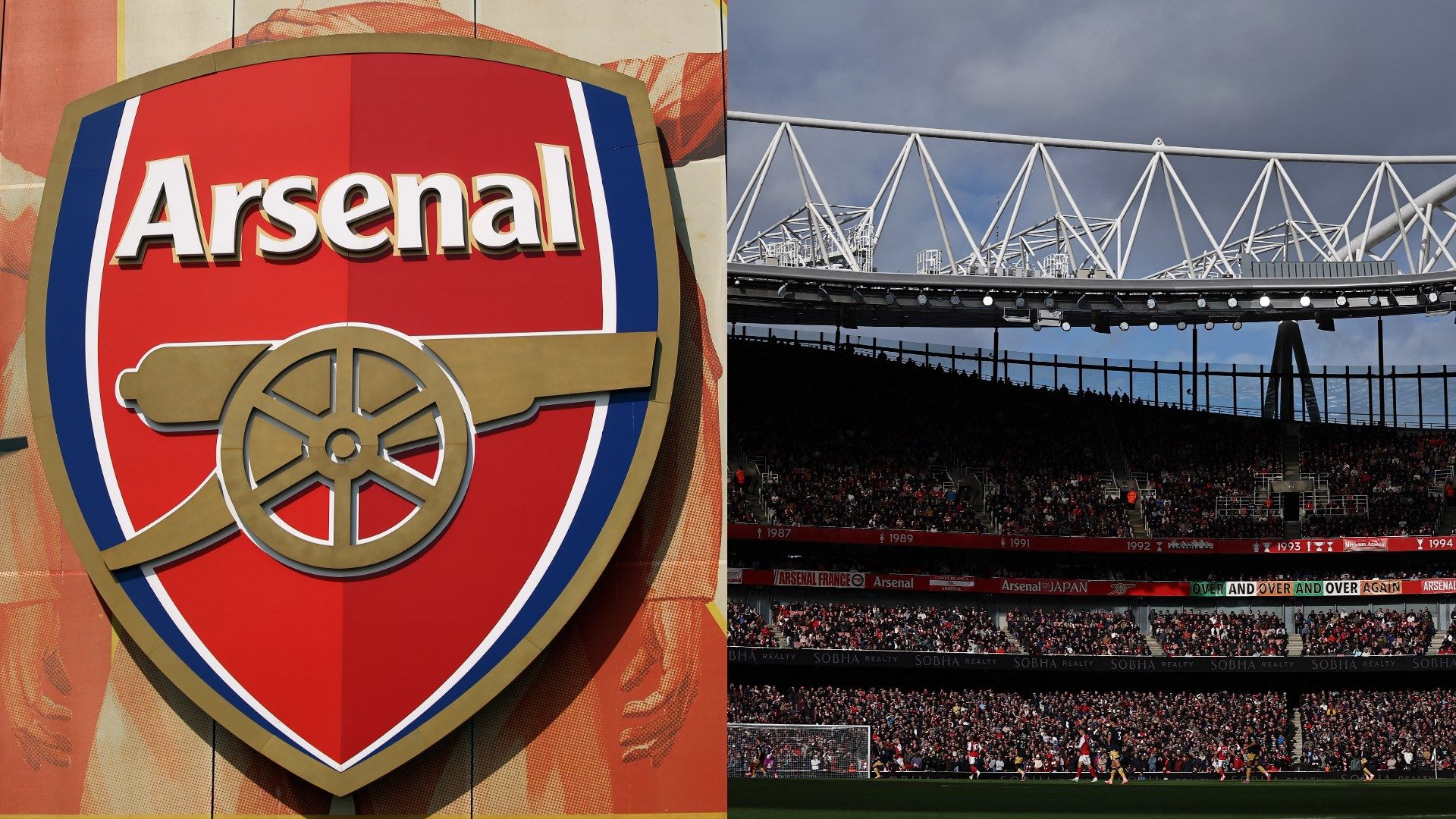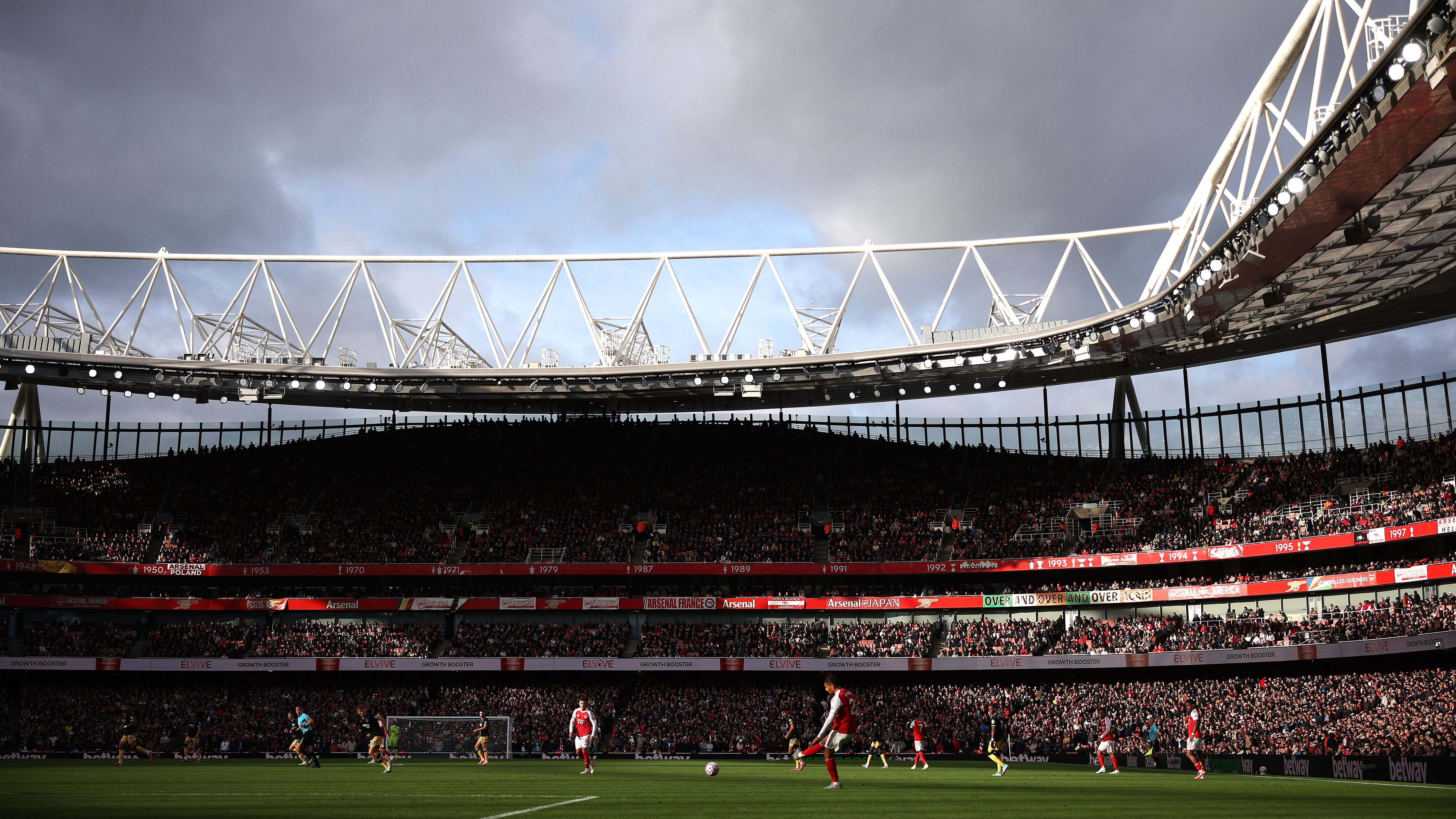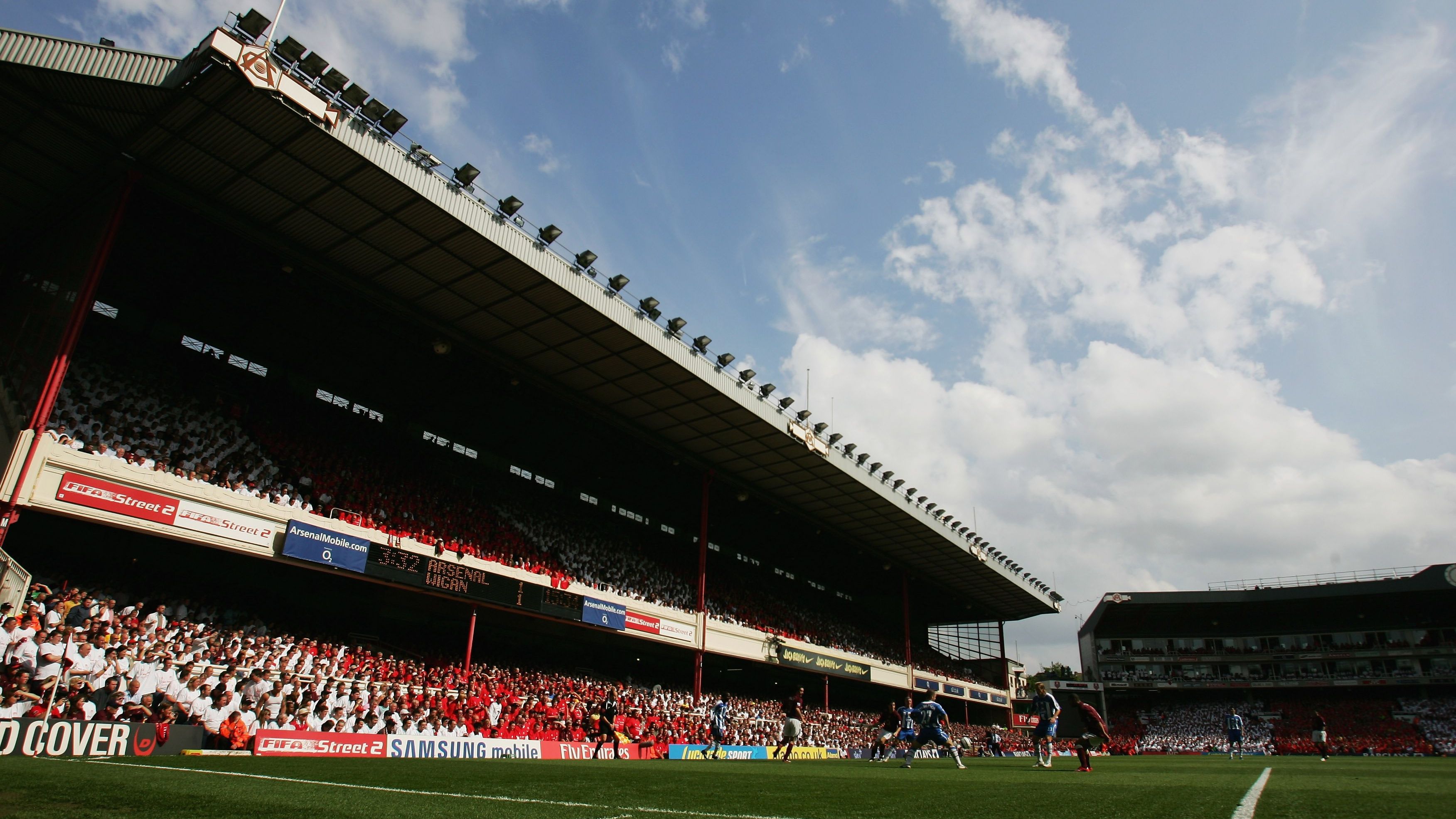


Arsenal’s Emirates Stadium: A Gateway to Financial Growth and Expansion
The football club is on the cusp of a major financial uplift as they gear up to overhaul their longstanding agreement for food and beverage services at the Emirates Stadium. This pivotal move comes as the existing 20-year pact with Delaware North, inked back in 2006 during the stadium’s debut, nears its end next summer. Early reports suggest discussions with various companies are underway, potentially boosting per-game earnings by at least £500,000 and yielding more than £10 million in extra revenue each year.
Arsenal’s Recent Financial Milestones and Strategic Shifts
In the previous financial period of 2023-24, the team achieved unprecedented earnings totaling £616.6 million, with £132 million stemming from game-day activities such as ticketing, premium services, and on-site purchases. Regular participation in the Champions League and full attendance figures have positioned the Emirates Stadium as a prime engine for ongoing commercial success. Under the guidance of Kroenke Sports & Entertainment (KSE), revamping the dining and entertainment offerings forms a core element of a broader plan to update the fan experience and optimize profits.
Evaluating Expansion Opportunities for the Emirates
Simultaneously, discussions are ongoing for potential long-term upgrades that might increase the stadium’s capacity from 60,704 to between 70,000 and 80,000 seats. These ambitious ideas carry a substantial financial burden, possibly surpassing £500 million, which could necessitate temporarily shifting home matches to Wembley Stadium for up to two years.
Transforming Commercial Agreements for Greater Flexibility
The end of the Delaware North contract signals a critical shift in the club’s business strategy, providing a unique chance to update an arrangement originally made under tight budget constraints almost 20 years ago. At the time of the Emirates Stadium‘s launch in 2006, financial pressures from construction limited negotiating power, resulting in a rigid deal that no longer aligns with modern fan spending trends. A more adaptable collaboration could enable integration of diverse hospitality providers, dining options, and exclusive fan areas throughout the stadium’s levels.
Ideal Timing for Arsenal’s Financial Momentum
From a monetary perspective, this moment is perfectly timed. The club’s resurgence in top European tournaments has restored their international prominence, while sold-out home games have elevated the Emirates Stadium to one of the Premier League’s top revenue generators. The owners are keenly aware of the need to turn this popularity into investments in lasting facilities, especially as rivals such as Manchester City, Tottenham, and Liverpool invest in their own venue improvements.
Challenges and Practical Considerations in Stadium Redevelopment
While the prospect of expanding to a 70,000-80,000-seat arena thrills the fanbase, the high costs involved-potentially over half a billion pounds-could make it unfeasible in the near future. Experts indicate a more realistic approach might involve converting private suites into versatile hospitality spaces, adding up to 2,000 seats at a much lower price point of about £100 million.
The Legacy and Evolution of the Emirates Stadium
Since its opening in July 2006, the Emirates Stadium marked a significant step for Arsenal’s aspirations to rival Europe’s leading teams financially. Relocating just a short distance from their historic Highbury ground, the club poured around £390 million into building a 60,000-capacity stadium, dramatically improving their income streams. Game-day earnings jumped from roughly £37 million at Highbury to more than £90 million in the Emirates‘ initial years, although this also led to years of fiscal caution that restricted transfer activity during Arsene Wenger’s era.
Enhancing Fan Identity and Experience
Gradually, the club has infused the stadium with its heritage through initiatives like adding statues of icons, artistic displays, and the iconic Highbury clock. Today, the Emirates Stadium is a standout landmark in the Premier League, yet supporters continue to push for upgrades in vibe and facilities. The overwhelming demand for tickets, with over 100,000 fans on the waiting list for season tickets, is a key driver behind KSE’s push for growth.
Past Explorations and Future Contingencies
The club has previously eyed Wembley as an option. Back in the late 1990s, when efforts to expand Highbury were thwarted, Arsenal made an official offer to acquire Wembley as their main base, only to be turned down by the Football Association. They subsequently utilized Wembley for select Champions League games from 1998 to 2000, establishing it as a viable alternative if renovations require a temporary move.
Next Steps in Deals and Developments
Expectations are that Arsenal will seal their updated hospitality agreement ahead of the 2026-27 season, paving the way for financial gains as early as the coming year. Meanwhile, officials are conducting in-depth analyses on Emirates Stadium expansion, comparing the merits of minor adjustments against a comprehensive overhaul that might demand a shift to Wembley. Any large-scale project will need regulatory nods and is unlikely to commence before 2027.
Prioritizing Sustained Growth and Fan Satisfaction
For now, the emphasis is on maintaining exceptional commercial performance while improving the overall matchday for attendees. Updates to hospitality setups, greater diversity in concourse offerings, and possible seat increases could elevate yearly game-day revenue beyond £140 million, helping Arsenal narrow the competitive gap with teams like Manchester United and Tottenham.
The Evolution of Arsenal’s Stadium Strategy
Arsenal Football Club has long been at the forefront of innovation in English football, and their recent securing of a lucrative Emirates Stadium deal marks a pivotal moment in supporting club expansion and the potential transition to Wembley for select matches. This deal not only bolsters Arsenal’s financial stability but also paves the way for enhanced fan experiences and infrastructure upgrades. As the club navigates this transition, keywords like “Arsenal Emirates Stadium deal” and “Wembley transition strategy” are becoming increasingly relevant for fans searching for updates on the Gunners’ future plans.
One of the key aspects of this deal involves extending partnerships that drive revenue while improving facilities. For instance, the agreement emphasizes modernization efforts at Emirates Stadium, including potential expansions to seating capacity and premium fan zones. This aligns with Arsenal’s broader vision for growth, ensuring the stadium remains a world-class venue amid talks of occasionally shifting high-profile games to Wembley Stadium. Such moves could optimize matchday logistics and increase exposure, especially for Champions League encounters, helping Arsenal maintain its competitive edge in the Premier League era.
Key Features of the Emirates Stadium Expansion
The Emirates Stadium deal incorporates several enhancements that directly support Arsenal’s expansion goals. These include upgrades to digital infrastructure, such as improved ticketing systems that streamline fan access and boost attendance. For example, initiatives similar to advanced lottery-based ticket draws have proven effective in enhancing fan engagement, allowing more supporters to secure spots for marquee games. This not only maximizes revenue but also fosters a sense of inclusivity among the global Arsenal community.
Bullet points outlining the main features:
– Enhanced seating and hospitality areas to accommodate growing fan demand, potentially increasing capacity by up to 10,000 seats over the next few years.
– Integration of sustainable technologies, like solar panels and energy-efficient lighting, to align with eco-friendly Premier League standards.
– Development of exclusive member perks, such as priority access to Wembley transition events, which could include special group packages for away supporters.
By focusing on these expansions, Arsenal is positioning itself for long-term success, with the Emirates Stadium deal serving as a cornerstone for financial and operational resilience.
Benefits of the Deal for Fans and the Club
The benefits of Arsenal’s Emirates Stadium deal extend far beyond mere financial gains, offering tangible advantages for both the club and its dedicated fanbase. For starters, this agreement could generate additional revenue streams through sponsorships and event hosting, which in turn funds player acquisitions and youth academy developments. Fans might notice improvements in matchday experiences, such as faster entry processes and better amenities, making “Arsenal stadium expansion benefits” a hot topic among supporters.
More specifically, the deal supports a smoother Wembley transition by allowing Arsenal to test larger venues for high-stakes matches without disrupting home game traditions. This flexibility could lead to increased TV deals and global visibility, ultimately benefiting the club’s brand. From a fan perspective, benefits include:
– Opportunities for more inclusive ticketing options, helping casual fans participate in Wembley events.
– Enhanced community programs that tie into stadium upgrades, such as fan forums and exclusive tours.
– Potential cost savings passed on to members, like discounted rates for season tickets during expansion phases.
These perks make the deal a win-win, emphasizing how strategic investments can elevate the Arsenal faithful’s overall experience.
Practical Tips for Navigating Arsenal’s Transition
As Arsenal moves forward with the Emirates Stadium deal and potential Wembley shifts, fans can take proactive steps to stay involved and make the most of these changes. Staying updated through official channels is crucial; for example, ensuring your membership details are current can provide better access to ticket draws and event notifications. Practical tips include:
– Regularly checking member portals for updates on expansion-related perks, which might include early bird access to Wembley match tickets.
– Joining newsletters to get ahead of announcements, allowing you to plan trips or purchases related to the transition.
– Engaging with fan communities online to share experiences and tips on securing the best seats during expansion events.
By following these tips, supporters can navigate the changes smoothly, turning the Wembley transition into an exciting opportunity rather than a challenge.
Case Studies and First-Hand Experiences
Drawing from similar stadium deals in football, we can look at case studies that illustrate the potential impact of Arsenal’s Emirates Stadium agreement. For instance, other Premier League clubs have successfully used venue expansions to boost fan engagement and revenue. One real-world example involves how ticket lottery systems have evolved, helping clubs like Arsenal Denmark manage high-demand scenarios for international matches.
In Arsenal’s context, first-hand experiences from fans highlight the excitement around such deals. Supporters who participated in recent ticket draws shared stories of seamless processes that made them feel more connected to the club. For example, one fan recounted how updating their profile led to winning spots for group stage Champions League games, mirroring benefits that could arise from the Emirates expansion. These anecdotes underscore the deal’s role in fostering loyalty and excitement.
Real Fan Insights
Digging deeper, anonymous fan feedback from online forums reveals that transitions like the one to Wembley can enhance the matchday atmosphere. One supporter noted: “The potential for Wembley games adds a fresh dynamic, especially with improved ticketing options-it’s like getting a bonus home away from home.” This insight ties into broader trends, where clubs leveraging deals for expansion see a 20-30% uptick in fan satisfaction scores.
Overall, by examining these case studies and experiences, it’s clear that Arsenal’s strategic moves are well-timed to support both expansion and transition efforts, ultimately strengthening the club’s position in the ever-competitive world of football.
As discussions around “Arsenal Wembley transition strategy” continue, the Emirates Stadium deal stands as a model of forward-thinking club management, ensuring sustained growth for years to come.[başvurmak:[başvurmak:https://arsenal.dk/gunticket-er-nu-aabent-2/][başvurmak:[başvurmak:https://indmeld.arsenal.dk/][başvurmak:[başvurmak:https://arsenal.dk/shop/tredjetroeje-25-26/]









